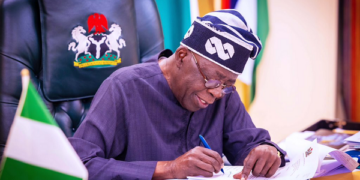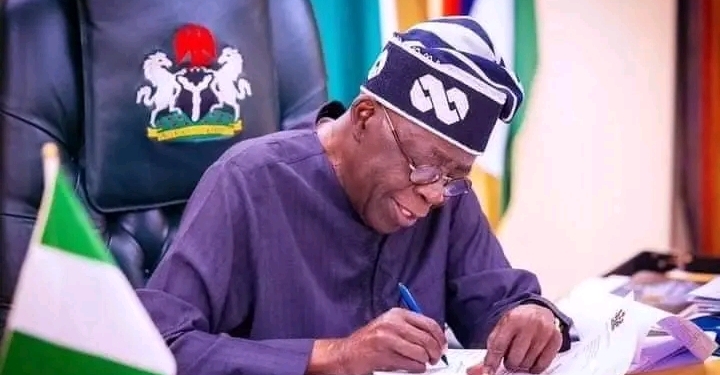- President Tinubu calls for a comprehensive global tax review, highlighting the imbalance favoring wealthier nations and hindering development efforts in Nigeria
- Nigeria, under Tinubu’s leadership, collaborates with other African states, initiating a UN Framework Convention on Tax to rectify systemic inequities
President Bola Ahmed Tinubu has emphasized the necessity of addressing the imbalance in the international tax regime, urging a comprehensive review of global taxation. Speaking at the Third South Summit of the Group of 77 and China in Kampala, Uganda, President Tinubu conveyed Nigeria’s stance on the issue, asserting that the current international tax systems, influenced by the interests of wealthier nations, put developing countries, especially in taxing digital economies, at a disadvantage.
Represented by the Minister of Budget and Economic Planning, Senator Abubakar Atiku Bagudu, President Tinubu highlighted the significant revenue losses resulting from this systemic imbalance, hindering efforts towards sustainable development and economic self-reliance.
In response, Nigeria, in collaboration with other African Group Member States, initiated a historic effort at the United Nations, calling for a Framework Convention on Tax. President Tinubu commended the countries supporting this global tax review initiative, expressing gratitude for their solidarity in rectifying the inequities of the current tax system and promoting a more just economic order.
Reaffirming Nigeria’s commitment to South-South economic collaboration, President Tinubu emphasized the crucial role of the Action Committee on Raw Materials (ACRM) of the G-77, advocating for its revival to enhance cooperation in raw material development and processing.
The president also underscored Nigeria’s belief in multilateralism as a means of addressing global challenges. Addressing recent developments in the State of Palestine, President Tinubu aligned Nigeria with the international community’s call for an immediate ceasefire and a peaceful resolution to the conflict. He reiterated Nigeria’s commitment to principles such as sovereignty, territorial integrity, and the promotion of peace and security, supporting a two-state solution for lasting peace in the region.
President Tinubu condemned indiscriminate violence and stressed the urgency of addressing humanitarian concerns, emphasizing the need to protect and dignify all civilians affected by the crisis. Acknowledging the challenges posed by illicit financial flows, he emphasized the importance of early action, with such flows estimated to siphon off billions of dollars annually from economies, particularly in the Global South.
President Tinubu concluded by emphasizing the significance of technical cooperation and capacity building in addressing current global challenges, reflecting Nigeria’s dedication to advocating peaceful solutions and contributing to the stability and prosperity of the African continent and the global community.










Discussion about this post